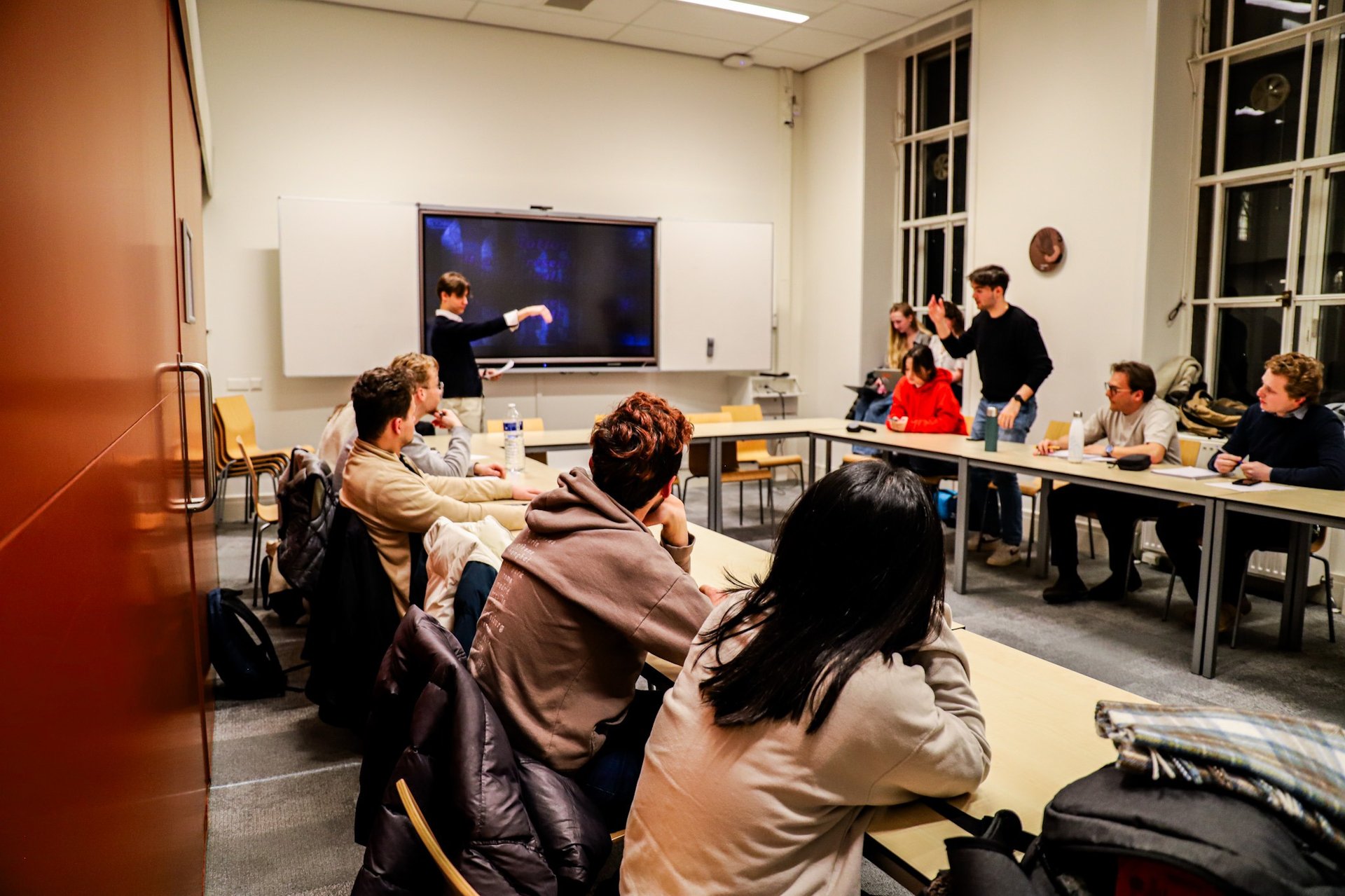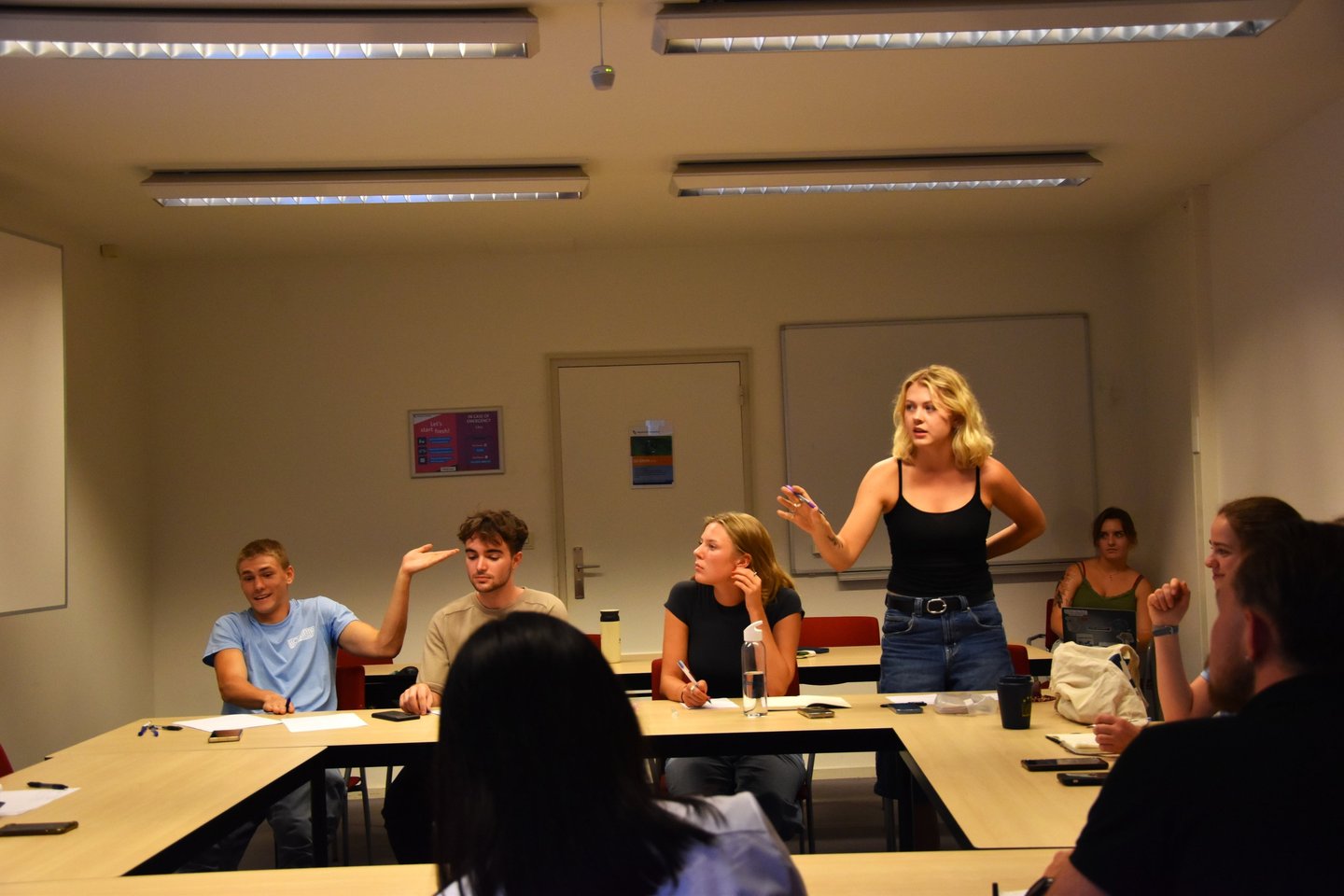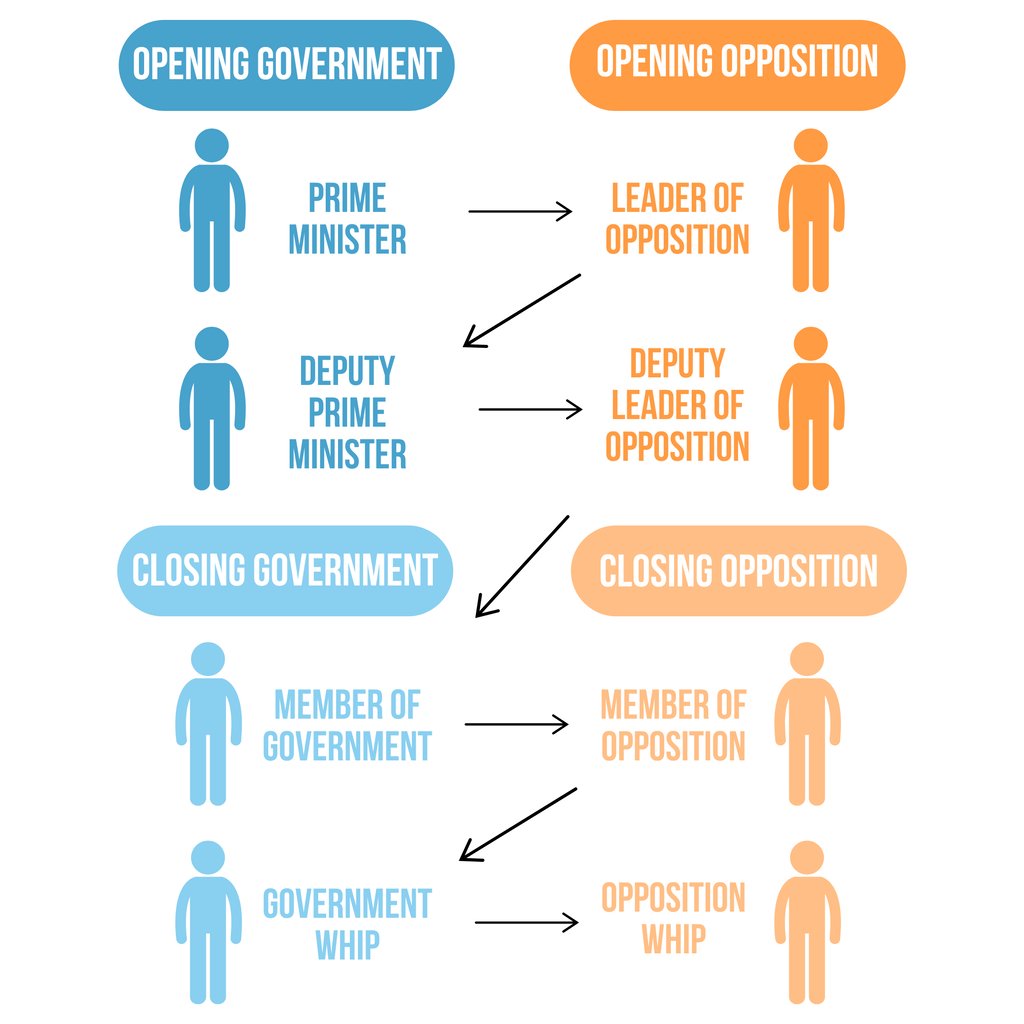
Fight club
The Competitive Debate Team
WHat is fight CLub?
Eloquentia includes the opportunity for exposure and training in British Parliamentary debate during our weekly Fight Club sessions, the association’s competitive debate team. The benefits of Fight Club are not isolated to becoming a better debater, you become more analytical in academic work, increase public speaking skills in high pressure situations, and you are able to attend a variety of weekend tournaments across the globe. This allows you to build your debating experience, network, and boost your CV whilst making friends around the world.
Every Tuesday, participants have the choice of spectating, judging, or debating a BP round. While the information presented below may be initially overwhelming, it can quickly become instinctual to you, should you choose to pursue Fight Club as a hobby or a competitive extra-curricular.


Why debate?
Now let’s say you muster up the courage to sign up, and you decide to try this public speaking thing and come to an event. Why bother debating? Why put yourself under the scrutiny of other people who will try to find something wrong in everything you say?
To start, it broadens your horizon. When debating, no matter if it’s a formal setting or an informal one, you get confronted with opinions, angles and viewpoints that you had not even considered. You are stimulating your mind while learning about new things, new facts, and might even find out that what you’ve been thinking is totally wrong.
This is a very important part. Debate, when done correctly, either leaves you being able to better defend your position, because you now know what the opposition thinks and you can defend against it, or it leaves you with a changed perspective on the issue at hand, because you are confronted with information that you now have to take into account. This is why debate is so crucial. It allows a group of people with conflicting opinions to come together, voice these opinions, and by arguing in good faith about them, they can sort out which positions crumble if put under the microscope and which positions stand even if people do their best to find all the bad things about them.


a debater's Handbook
A guide to BP debate
upcoming competitions
BP debate offers a strong international community through its frequent weekend competitions, otherwise coined as ‘comps’. Comps are usually hosted at a university by their debate association and last two days. Each day consists of five debate rounds, with finals and novice finals on the second day. Additionally, these comps provide ‘crash’, an accomodation system that allows international debaters to sleep at a local debater’s place for free.
judging
Within BP, a participant can choose to be a debater or a judge. Judging a debate involves noting down speeches, determining speaker scores (scaled from 60 to 100), and weighing teams against each other to decide on the final call (ranking teams from 1st to 4th).
The hierarchy of judges is established as chair judge, wing judge, and trainee. As chair, you have the authority to lead the discussion and decide the last call. Wing judges also contribute to the discussion. Usually, trainees will not contribute to the discussion and will only be consulted if the call is difficult to ascertain.
Fight Club offers weekly opportunities for judging, whether as a chair, wing, or trainee. This will increase your knowledge and ability to judge, without removing the option of debating instead. Finally, this permits you to apply to competitions as a judge, regardless of your experience in the role.
British Parliamentary debate is an internationally practised and respected debate format. Each round consists of four teams of two speakers, and each team is assigned a position before the motion is revealed. Listed in order of speaking, positions include opening government (OG); opening opposition (OO); closing government (CG); closing opposition. Each speaker gets seven minutes to speak, and of that, two minutes uninterrupted. In addition to whether your team supports the motion as government speakers, or opposes the motion as opposition speakers, the position you are assigned will determine a unique set of duties you must apply within your speech. Examples of these duties may include rebuttals, introducing new points, and weighing.
While this summary may be intimidating to beginners, the official structure will be introduced before every Fight Club session with the opportunity for questions and clarifications. Additionally, you are always welcome to spectate the sessions, which would demonstrate this structure in practice.


eloquentia maastricht
The Public Speaking and Debate Association
Contact Details
General: eloquentiamaas@gmail.com
Executive: executive.eloquentia@gmail.com
External Relations: er.eloquentiamaas@gmail.com
Maastricht Open: openmaastricht@gmail.com
Collaborations: specialevents.eloquentia@gmail.com
© 2025. All rights reserved.
